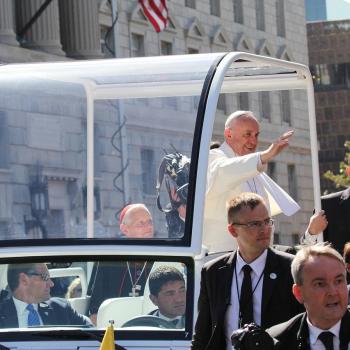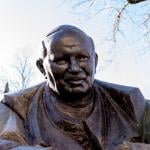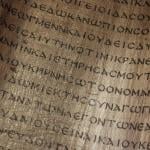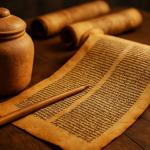JOSHUA (no location listed) ASKS:
What wouold you say is the biggest political theology story that has gone relatively untold in the last few decades?
THE GUY ANSWERS (U.S. only, skipping other nations):
Nobody missed the rise of the Moral Majority and Christian Coalition etc. Media analysts have expressed continual fascination or dismay over “religious right” activism, often missing the obvious fact that these conservatives merely imitated prior mobilizations by religious liberals.
Which brings to mind the great civil rights movement that began in the mid-1950s. The Guy proposes that one of the big untold stories if not the biggest was the response by white southern evangelicals. The well-known courage of African-American Protestants in ridding the South of repellent racial bigotry is enshrined in the magnificent “Parting the Waters” by Taylor Branch (Simon & Schuster, 1988). There’s also memorable treatment by University of Arkansas historian David Chappell in “A Stone of Hope: Prophetic Religion and the Death of Jim Crow” (University of North Carolina Press, 2004).
But what about whites? On that, Chappell, an atheist, has added fresh, sophisticated analysis. Alas, we can assume some few Klan-style terrorists were churchgoers. But consider the main body of southern evangelical Protestants. Their performance certainly fell short of northern white liberals’ valor and is open to considerable criticism. And yet, as a reviewer in “The Atlantic” summarized, Chappell has shown that “nearly every important southern white conservative clergyman and theologian averred that there was no biblical sanction for segregation or for white supremacy.” This lack of moral grounding is what finally doomed Jim Crow in that notably pious and theologically conservative region — despite seemingly all-powerful racial traditions backed by many of South’s Democratic Party titans.
A subsidiary story: The mainstream media have tended to neglect black religion, including the intriguing opposition to civil rights activism by some conservative black pastors. The most notable was Chicago’s Rev. Joseph H. Jackson, the longtime (1953-1982) president of America’s largest African-American organization, the National Baptist Convention USA Inc. Jackson’s rivalary with the Rev. Martin Luther King Jr. was both personal and ideological. Regarding this and the large church split that resulted, see “This Far By Faith: Stories from the African American Religious Experience” by Juan Williams and Quinton Dixie (HarperCollins, 2005).












